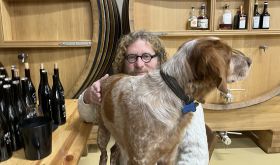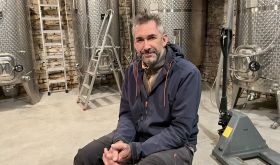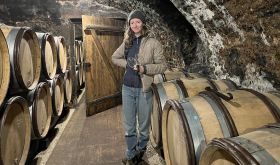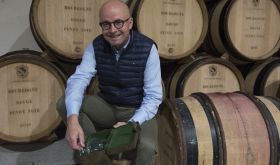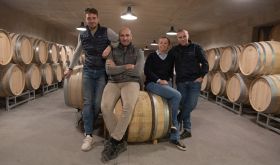I have been approached by a WSET Diploma student who was in risk management but now designs and supplies wine cellars for a living (see www.aktivni-vinne-sklepy.cz). He has had another idea, however: the establishment of an independent body that would certify wine storage conditions. The purpose of this article is to try to gauge interest in it.
Jiri Tillman originally wrote to me thus:
‘During my studies I realised there is no company monitoring the places where the wine is stored. Moreover there was no solution for my clients who wished to have proof that the conditions of their cellars are optimal for wine ageing. This idea led me to conceive a long-term project.’
With colleagues, Tillman has researched different storage conditions and has also taken into account the experience of his clients with proper wine conditions. Based on this they have devised a set of rules governing ideal conditions and the issuing of certificates. He sees the greatest value of his scheme being adding value for those selling on the secondary market. You could assure buyers that what you are selling has been stored correctly.
His company is Wine Storage & Transport Certification Ltd (www.wstc.co.uk) although in fact he is based in Prague rather than in the UK (and supplies cellars such as the one show here particularly in Germany). Tillman is hoping to be able to monitor the whole journey of the bottle to wine lover`s table.
Tillman adds: ‘The data collection from thousands of wine cellars and transport companies could also be very interesting study material. I am working on online wine cellar management systems and a further step would be a community of certified wine cellar owners – thus the development of a particularly safe secondary wine market.’
For individual wine collectors with their own cellars (and I suspect this is becoming a smaller and smaller subsection of the wine-drinking population – see all those addresses in our Where to store section), the idea would be that the cellar would be permanently monitored and fitted with an alarm that went off whenever temperature or humidity limits were breached.
Tillman would also be interested to know how important it would be to have proof in the form of certification that wine has been stored in proper condition (‘not just temperature and humidity’), by an independent body.
He says, ‘feedback from potential applicants (or my expected target market) is really important for me even if it is not positive. Initial setbacks are part of any new initiative – when I left to set up my cellar business, all my friends thought I was crazy. Yet I felt it was the right way for me and never regretted the decision. I feel very strongly about the wine storage licences now.
‘The Hong Kong wine management system is already in place and serving big corporate clients, logistics companies and commercial wine storage facilities. I would like to offer something similar to the rest of the world including individual investors. Our clients would gain competitive advantage and an additional marketing tool for selling wine.
‘I envisage WSTC as an information centre serving the public. It would be a reliable source in the field of wine handling. The ultimate goal would be to develop the wine business further while safeguarding the quality of wine through proper storage.’
Discussing this ambitious scheme with various parties in and around the UK trade, I found some with well-heeled collector clients suggesting that the scheme would be of most interest if it included a troubleshooting element when the alarm went off. And a fine-wine merchant pointed out that the weakest link in wine storage is not the storage but the transportation – ‘even with reefers you can find the wine sitting on a dockside or in a van with unacceptably high temperatures'.
Tillman comments on this: ‘The key idea of the licence is to cover wine conditions from any winery to the customer's table.This includes transportation as well. We prepare audits of transport companies and monitor conditions from selected wineries. We are are in negotiations about the licences with one of the most important wine transporter, JF Hillebrand.’ In which case, so much the better.
I think it’s a nice idea but I suspect the market for such a service would be tiny. Jiri Tillman would much appreciate feedback, whether enthusiastic or the opposite and would love to hear from you at tillman@wstc.co.uk.







